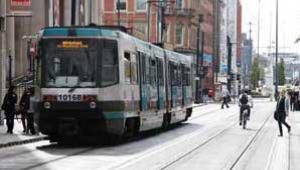The localisation of NHS spending means that for the first time a single body – the Greater Manchester Health and Social Care Partnership – will control health and social care spending across the conurbation, a sum of more than £6bn.
The deal, which was first agreed with chancellor George Osborne last February, has led to the development of a five-year plan to improve health and care across the region through greater integration of services and a new relationship between public services, citizens, communities and businesses.
Greater Manchester will remain as part of the NHS, with nationally agreed targets, but leaders here will have increased freedoms and flexibilities to tailor spending under the city’s devolved powers.
As part of the deal, Greater Manchester is to receive £450m in additional transformation funding to support the devolution agreement, which as well as moving funding to keep people out of hospital is intended to better align the health and care system with education, skills, work and housing.
Lord Peter Smith, chair of the Greater Manchester Health and Social Care Strategic Partnership Board, said establishing the new system has been the crux of its work for the past 12 months.
“Quite frankly, the progress we have made has been revolutionary for the region and we are in a great place ahead of a new era for health and social care services,” he stated.
Sir Howard Bernstein, joint chair of the GM Health and Social Care Devolution Programme Board as well as Manchester City Council chief executive, said the involvement of 37 organisations across local government and the NHS had been unprecedented.
“That unity has been inspirational as we prepare for full devolution – and new ways of working that see more integration between health and social care and improving outcomes for patients across Greater Manchester.”
Ann Barnes, chief executive of Stockport NHS Foundation Trust highlighted that, for the first time since the NHS was created in 1948, Manchester will be able to join up health and social care services.
“It should mean that more people leave hospital sooner and others avoid having to go to hospital all together,” she said.
“Devolution ties Greater Manchester together for greater change. We know there are challenges ahead, but we're ready and we're excited."
Jane Payling, the head of health and integration at CIPFA said devolution represented "a real opportunity" to get local services working together.
"Joining up healthcare with social services, police and others can lead to better outcomes and lower costs," she said.
"This move will make services more accountable to the people of Manchester, letting them decide what’s best for the local population.”
Manchester could lead the way to similar deals, according to Harry Quilter-Pinner, a researcher at the Institute for Public Policy Research.
“While there are undoubtedly risks involved in ‘devo health’, detractors are overstating their case and failing to see the opportunities that it provides,” he said.
“The biggest of these is the possibility for local leaders to align health spending with spending on all the other things that determine our health. There’s now a mass of evidence that ill health is impacted by areas of policy as diverse as housing, transport, criminal justice education and employment.”
“The challenge for Manchester is to lead the way by showing how local leaders can unlock these benefits and demonstrate that they really can do a better job than Jeremy Hunt and George Osborne.”





















